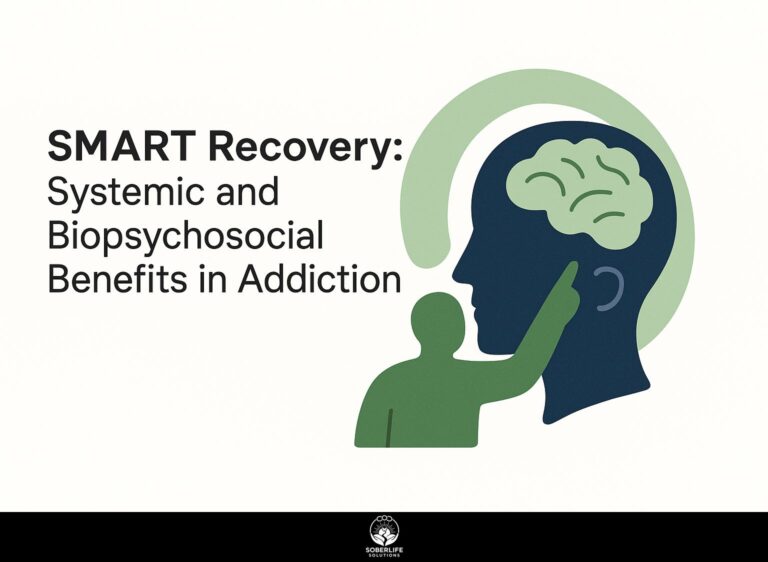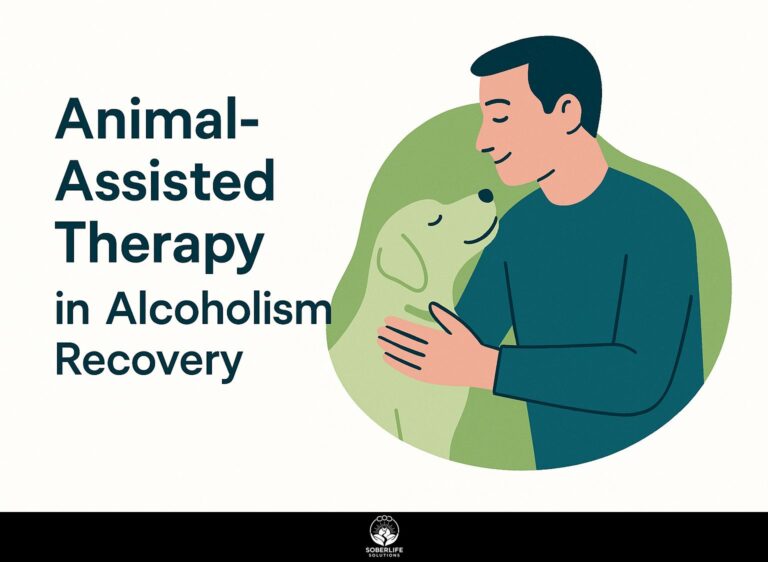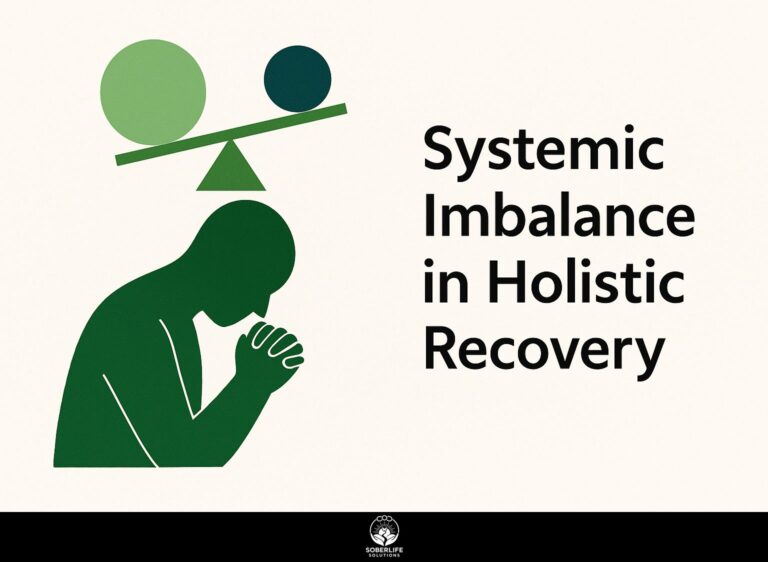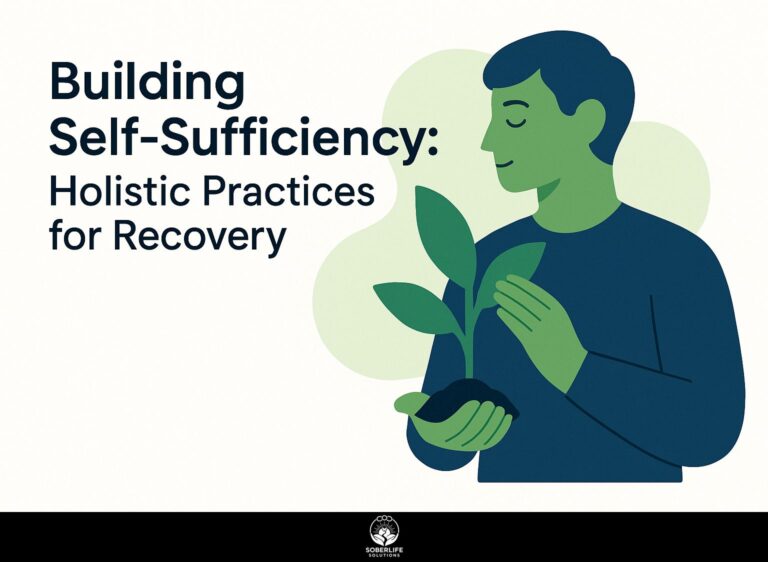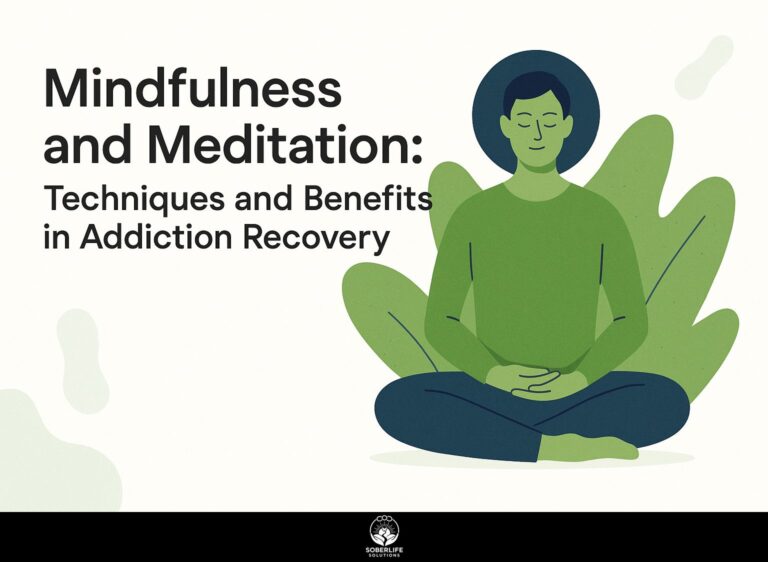Nutrition and Physical Well-being in Women’s Recovery
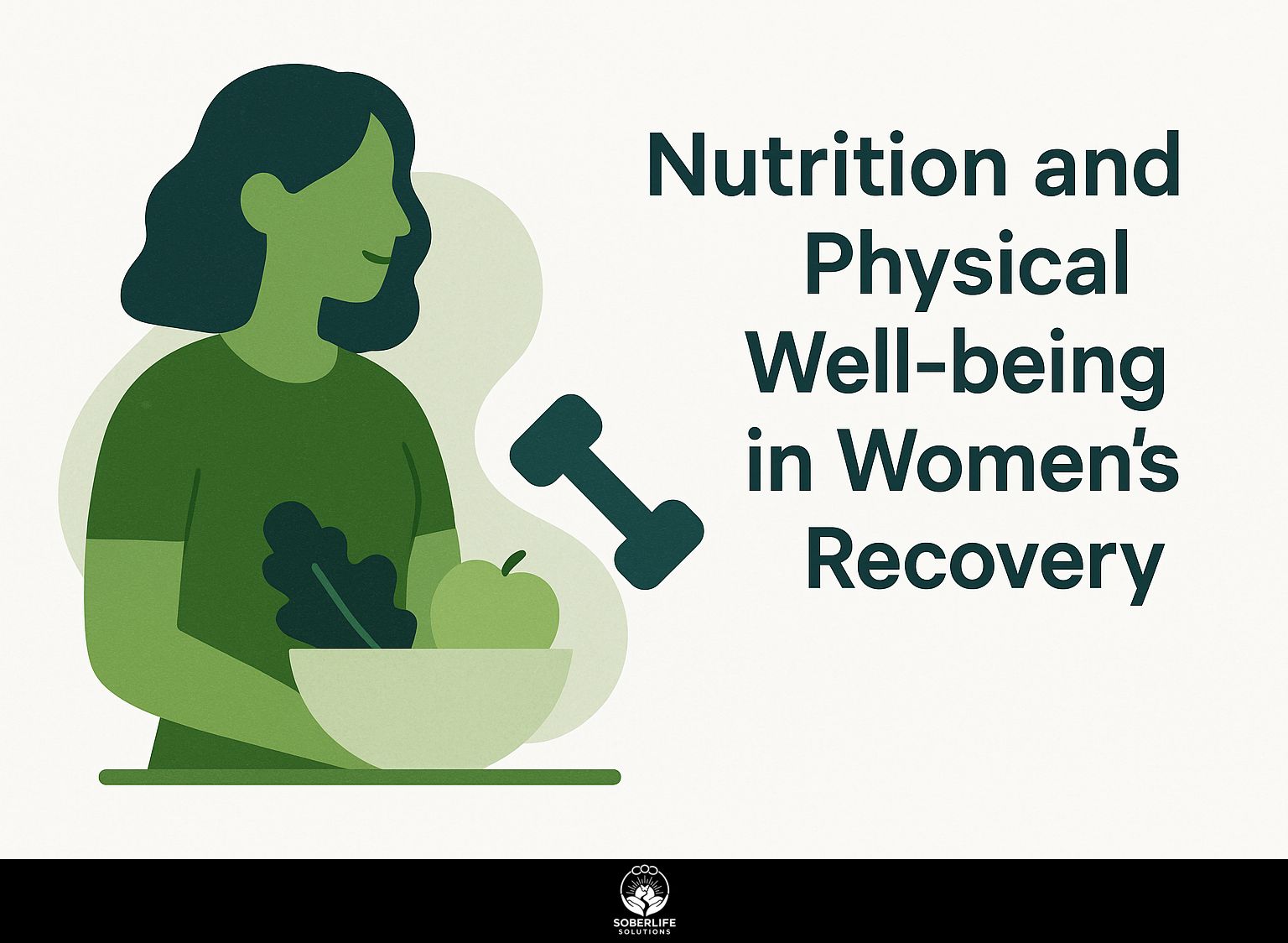
During the process of recovering from substance use disorder, eating well and staying physically healthy are very important. Following a tobacco-free policy and offering nutrition advice can greatly improve health programs. According to the California Tobacco Control Program, focusing on exercise and a healthy diet helps recovery and allows women to take control of their health. This article provides useful information on creating helpful nutrition plans and explains the important link between physical health and recovery.
Key Takeaways:
The Role of Nutrition in Recovery
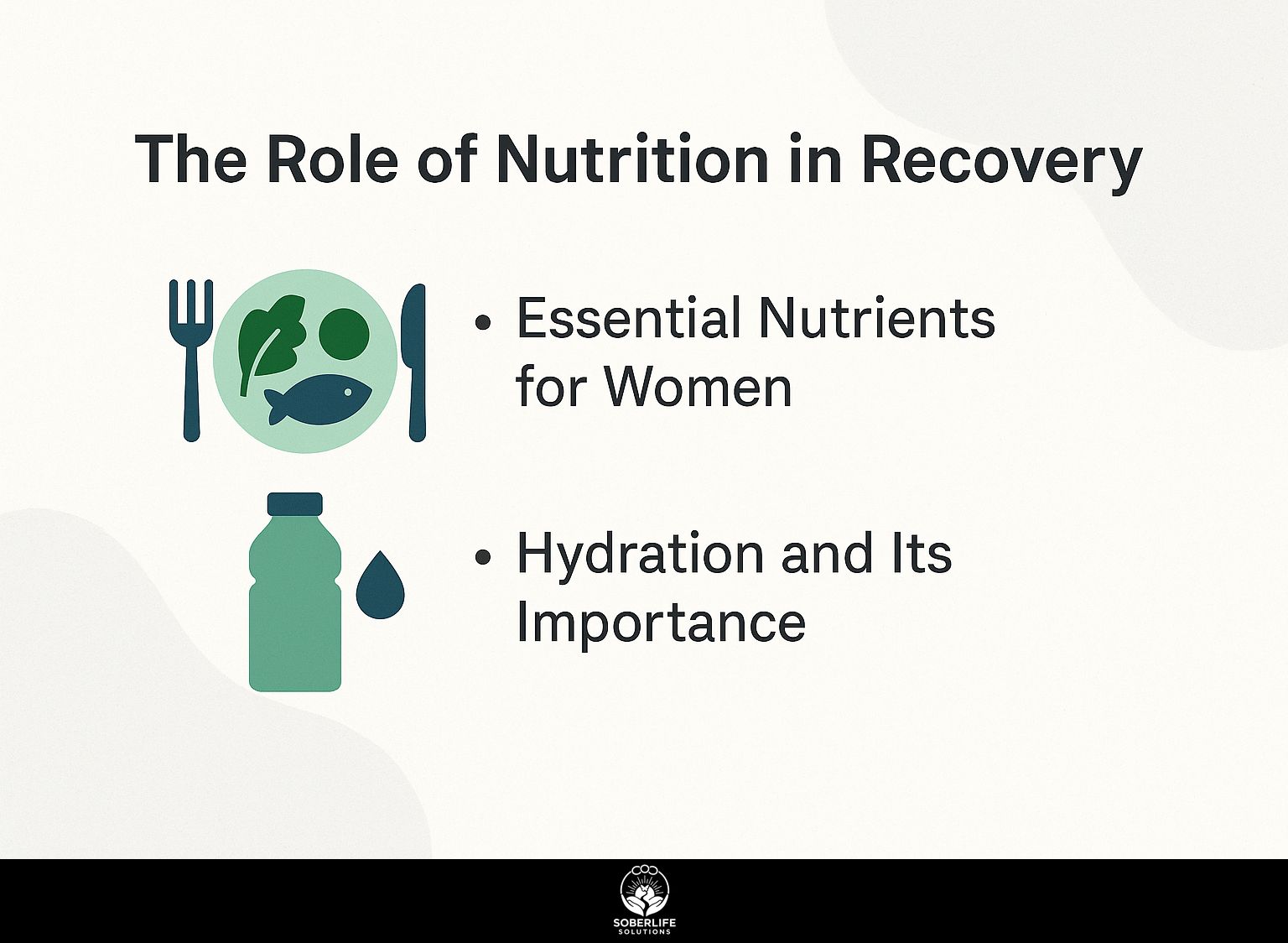
Nutrition is very important for recovery. It is often the main support for counseling programs focused on bringing back health and well-being. For context, MDPI’s research on emerging perspectives highlights the critical role of nutrition in post-exercise recovery, emphasizing its impact on restoring health and stamina. Additionally, nutrition plays a pivotal role during detox phases, providing essential benefits and guidelines for recovery as mentioned in our examination of Nutrition Therapy in Detox.
Essential Nutrients for Women
Women recovering from substance use disorders require specific nutrients like omega-3 fatty acids, vitamin D, and iron to support their health.
To aid recovery, women should focus on incorporating foods rich in these essential nutrients.
For omega-3 fatty acids, consider fatty fish like salmon and walnuts, while vitamin D can be supplemented through mushrooms and fortified dairy products. Iron can be found in spinach, red meat, and legumes. According to Healthline, these nutrients are particularly crucial for young women to maintain optimal health.
Using apps like MyFitnessPal to track daily intake can help maintain nutrient goals. A sample meal could include baked salmon, a spinach salad topped with walnuts, and a side of fortified yogurt to promote overall recovery. See also: Women’s Detox Programs: Definition, Services, and Benefits for insights into how structured programs can further support recovery.
Hydration and Its Importance
Drinking enough water is very important because not having enough can worsen withdrawal symptoms and slow down physical recovery.
Dehydration negatively impacts mood and cognitive functions, often leading to increased anxiety and reduced focus. To maintain optimal hydration, consider implementing a daily routine that includes drinking at least eight 8-ounce glasses of water. According to Healthline, there is a significant connection between dehydration and increased anxiety levels, making hydration a crucial part of managing mood.
Using hydration tracking apps like WaterMinder can help you monitor your intake throughout the day. Carrying a refillable water bottle makes it easy to sip regularly, ensuring you replenish lost fluids, especially during physical activity or after intensive workouts.
Aim for hydration to become an integral and enjoyable part of your recovery process.
Physical Well-being and Its Connection to Nutrition
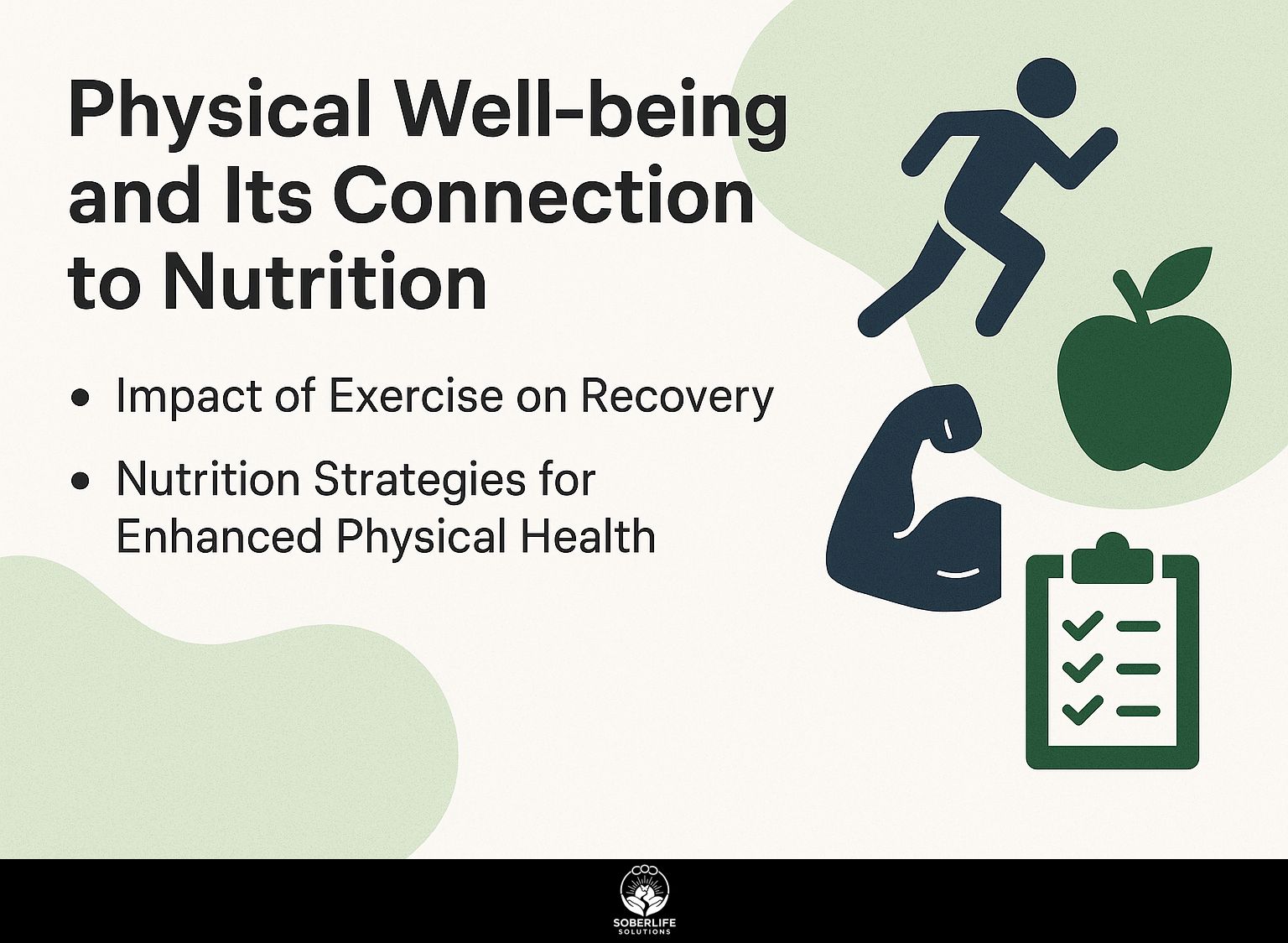
Physical health is closely connected to nutrition. Eating balanced meals helps improve physical activity and recovery. Learn more about the benefits of nutrition therapy in detox and how it plays a crucial role in physical well-being.
Impact of Exercise on Recovery
Regular exercise serves as a powerful adjunct to recovery, improving mood and reducing cravings in individuals overcoming substance use disorders.
Doing physical exercise releases chemicals in the brain that improve mood and lessen anxiety.
To practically include, try beginning with yoga classes, which improve flexibility and encourage mindfulness. Alternatively, group fitness sessions provide a supportive environment, motivating individuals through shared experiences.
- Begin with two sessions per week, gradually increasing frequency as fitness levels improve.
- Tools like MyFitnessPal can help track exercise and nutrition, ensuring a balanced approach to recovery.
Creating a regular schedule that includes exercise helps you feel successful and supports recovery efforts.
**Nutrition Tips for Better Physical Health** Eating healthy foods helps improve your body. Follow these tips to improve your physical health: ### Balanced Diet A balanced diet includes a mix of fruits, vegetables, proteins, and grains. Make sure to eat a variety of foods to get all the nutrients your body needs. ### Hydration Drinking enough water is important for your health. Try to drink at least eight glasses of water a day. ### Regular Meals Eating regular meals helps keep your energy levels stable. Avoid skipping meals and try to eat at the same times each day. ### Portion Control Pay attention to portion sizes to avoid eating too much. Use smaller plates if it helps control your portions. ### Limit Sugary Foods Reduce sugary foods and drinks in your diet. Too much sugar can lead to weight gain and other health problems. ### Read Food Labels Reading food labels can help you make healthier choices. Look for foods low in saturated fat, trans fat, and sodium. ### Healthy Snacking Choose healthy snacks like fruits, nuts, and yogurt. Avoid snacks that are high in salt and sugar. ### Cook at Home Cooking at home lets you control what’s in your meals. Try new recipes to keep your meals interesting and healthy. ### Consult a Professional If you need help with your diet, talk to a nutritionist or dietitian. They can give personalized advice based on your needs. Remember, making small changes to your diet can lead to big improvements in your health over time.
Using specific nutrition plans can greatly improve physical health and help maintain recovery in women.
One effective approach is to adopt the plate method, where half your plate consists of non-starchy vegetables, one-quarter contains lean proteins like chicken or fish, and the remaining quarter is reserved for whole grains such as quinoa or brown rice.
Meal prepping can make things easier: try using apps like Plan to Eat to organize recipes and shopping lists.
For instance, a sample weekly menu might include:
- Grilled salmon with steamed broccoli and a side of quinoa on Monday
- A filling vegetable stir-fry with tofu for Tuesday
Common Nutritional Deficiencies in Women
Many women in recovery face nutritional deficiencies that can hinder their progress, particularly in vitamins B12, D, and iron.
Testing for these deficiencies can be done through blood tests recommended by healthcare professionals. If you are missing these important nutrients, think about eating foods that contain them.
For instance, add:
- Leafy greens, legumes, and lean meats for iron
- Oily fish and fortified cereals for Vitamin D
- Dairy products or nutritional yeast for B12
Supplementation may also be necessary, but it’s essential to consult with a nutritionist or doctor to tailor a plan that suits your recovery needs. For more detailed guidance on how nutrition can support your journey, check out our expert opinion on nutrition therapy in alcoholism recovery.
Building a Balanced Diet for Recovery
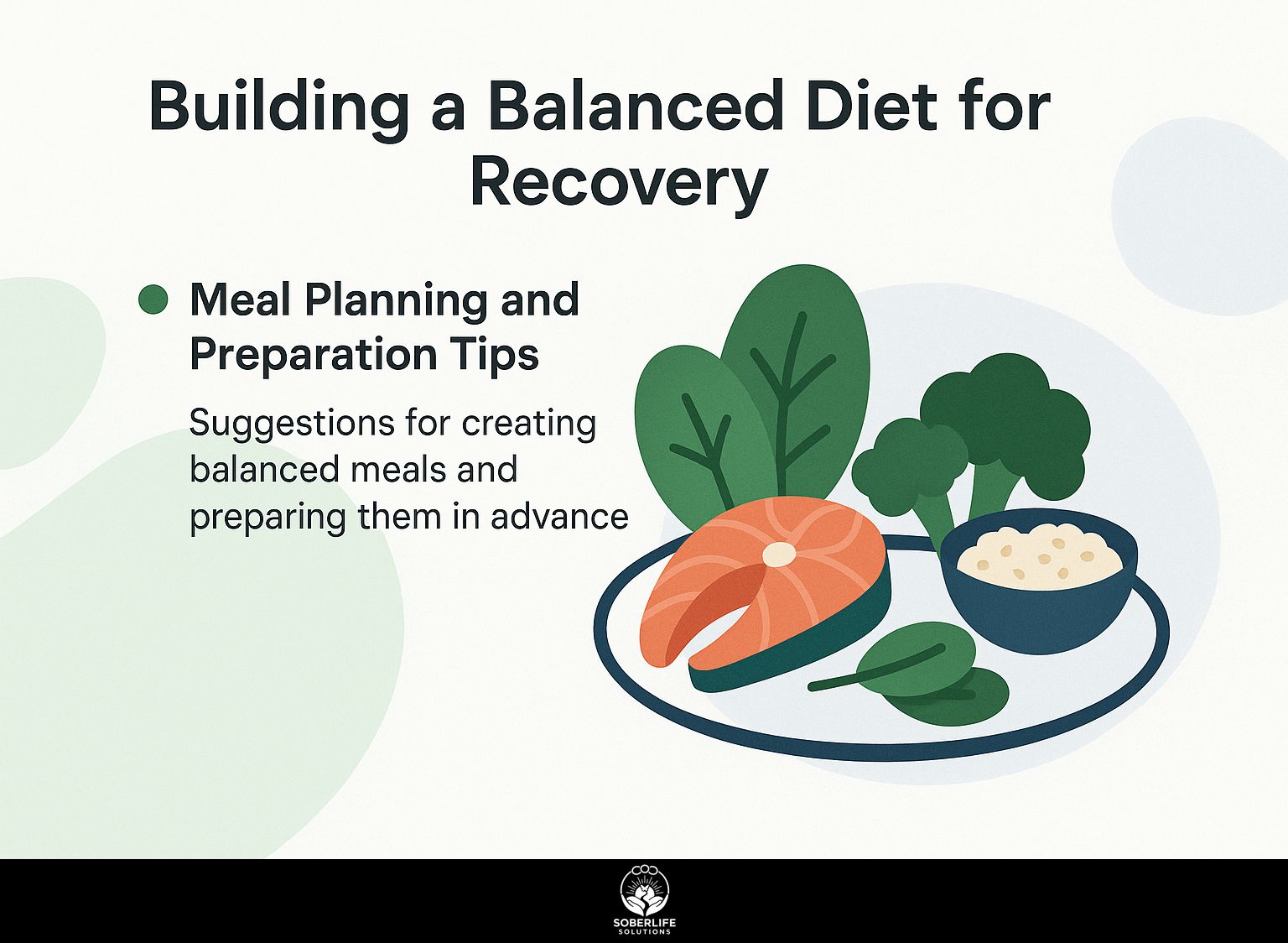
Eating well is essential during recovery, providing the necessary nutrients to support both body and mind.
Meal Planning and Preparation Tips
Planning meals well can make healthy eating easier and help meet nutritional requirements, especially for women in recovery.
To start, create a weekly meal plan that includes breakfast, lunch, dinner, and snacks. Choose nutrient-dense foods like leafy greens, lean proteins, and whole grains.
For instance, your meal plan might feature:
- Oatmeal with berries for breakfast,
- A quinoa salad for lunch,
- Roasted vegetables and chicken for dinner,
- Almonds for snacks.
Apps like MyFitnessPal or Mealime can help you monitor your meals and maintain a healthy diet.
Think about cooking meals in large quantities on weekends so you have ready-to-eat healthy meals for the week.
Emotional and Psychological Aspects of Recovery
Meeting emotional and mental needs is important for recovery. Strong support systems improve health results for women. Indeed, understanding the importance of peer support networks can significantly enhance recovery outcomes by providing emotional and social stability.
The Role of Support Systems
Support systems, including friends, family, and professional help, are essential for women dealing with the difficulties of recovery.
Building strong support systems starts with identifying key individuals who can provide emotional and social support.
Consider reaching out to local women’s recovery groups through platforms like Meetup, where you can connect with others who share similar experiences. Online communities like those on Reddit or Facebook can offer 24/7 support and advice.
Talking about your experiences with reliable friends or therapists can help you stay on track and feel part of a group, which makes recovering easier and more rewarding.
Frequently Asked Questions
1. What is the role of nutrition in women’s recovery?
Nutrition is important for women’s recovery because it supplies the essential nutrients needed for physical and mental health. A balanced and healthy diet can support the body’s healing process and improve overall health.
2. How does physical well-being impact women’s recovery?
Physical well-being is essential for women’s recovery as it can increase energy levels, improve mood, and reduce stress. Engaging in physical activities can also promote healthy habits and a sense of accomplishment.
3. What are some key nutrients that are important for women’s recovery?
Some key nutrients for women’s recovery include protein, healthy fats, complex carbohydrates, and vitamins and minerals. These nutrients can help build muscle, heal tissue, increase energy, and improve health.
4. How can proper nutrition help with managing cravings during recovery?
Having a well-balanced and nutrient-dense diet can help regulate blood sugar levels and reduce cravings for unhealthy foods. This can also help with managing addiction cravings and promoting a healthier lifestyle.
5. Can a lack of proper nutrition hinder women’s recovery process?
Yes, not eating well can slow down women’s recovery and make them more prone to health problems in both body and mind. Poor nutrition can also lead to a weaker immune system, which can slow down the recovery process.
6. How can women add physical activity to their recovery process?
Some ways to include exercise in women’s recovery process are walking, doing yoga, joining a fitness class, or just finding an activity that makes them happy and supports their physical health. It’s important to listen to your body and find an exercise routine that works for you.

